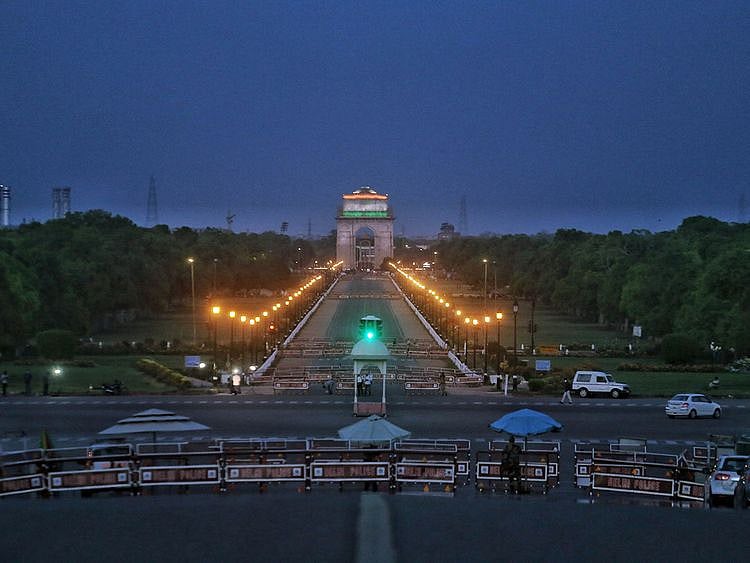How free is free and who is to decide? These are questions that all states and societies must answer for themselves. If someone else is to adjudicate in these matters, wouldn’t that be a sign of external interference and proof of lack of freedom?
Having said this, every country or culture must also ask itself, quite impartially, if not self-critically, how free are we? This is assuming that freedom is a virtue, which in most modern societies is taken for granted. Freedom from slavery, external control, oppression, exploitation, and physical bondage. These freedoms we might consider universally desirable.
Furthermore, freedom from grinding poverty, inequality, injustice, or deprivation. These are certainly needed too. Roti, kapda, makaan — bread, garments, shelter — what we consider the bare necessities of life: freedom from not having these would also be essential to any notion of a good life.
Then, basic human dignity, not being denied the respect due to a human being, regardless of one’s place of origin, ethnicity, language, religion, skin colour, or domicile. Freedom from bigotry, hatred, discrimination, intolerance, violence, torture, or custody. Due process of law. Freedom from fear of threats to life and limb, property and possessions.
Freedom from fear
Freedom from fear due to state and police brutality and sexual harassment at work or insecurity within the family. Freedom to follow one’s social or sexual orientation, choose one’s partner, even to cross from one gender to another. These, though debated, are also being globally considered as worth pursuing and guaranteeing.
Ultimately, the freedom to progress as per the orientation or inclination of one’s inner being. Freedom to grow to one’s fullest potential, unhampered or restrained by external forces and compulsions, whether these are social, religious, political, or economic. Psychologically and spiritually, freedom from anxiety, anomie, alienation, loneliness, suffering. Freedom to realise oneself. Freedom to love. Freedom to be.
The spectrum of freedoms is, indeed, almost limitless. And yet, freedom, though a value, is not absolute. There are natural and social limits to liberty. Even economic, religious, and political restraints. Speaking of the latter, till very recently, most people in most parts of the world were not free in the sense that we think of freedom today.
For instance, and this becomes so apropos on International Women’s Day, March 8, women were not allowed to vote in the most advanced democracies of the world till just about a 100 years ago. In fact, some cantons in Switzerland permitted women’s franchise as late as the 1970s.
Alignment with US interests
Given this background, we might as well ask how free is Freedom House itself which annually rates other countries across the world on its freedom index. Freedom house is largely funded by the United States government. In fact, according to their own disclosures this support is to the extent of 88% according to the 2018 figures. Given Freedom House's history of advocacy of freedom, especially during the Cold War, its alignment with US interests cannot be doubted.
Freedom, in the Freedom House sense, is thus highly ideological and loaded, not quite as broad and multifaceted as the various dimensions explored earlier. No wonder its annual “Freedom in the World Report,” which recently downgraded India from “free” to “partly free” has been met with dismay and indignation in India. Given our colonial hangover, we’ve been especially sensitive to criticism by our erstwhile masters, the “white” Western world.
But can we — or should we — really live up to their expectations or chart our own course instead? Bullying less powerful governments, parties, and leaders is the habit of the dominant powers of the world. When it suits its interests, the United States itself has unabashedly supported dictators and despots, in its own so-called backyard, Latin America, to distant corners of the world. Some would even say that the US itself is not a particularly free society, with all kinds of competing and sponsored intolerances let loose, like cats among pigeons, on a divided and disgruntled populace.
The good book sayeth, judge not lest ye be judged. But in our compulsion to impose our views and values on others, we are quick to judge and cast aspersions upon them. Let s/he who has not sinned cast the first stone — another famous scriptural quotation may apply equally well here. Only the truly free may cast stones, so to speak, at the unfree. Not those who are puppets of their own governments and ideologies.
This does not mean that the Indian state and society should simply ignore such downgrades. We must not condemn ourselves to an ostrichlike denial of the external world or, worse, chauvinistic reactivity.
India should safeguard its constitutional freedoms, including freedom of religion, assembly, expression, and peaceful protest. Due process, executive and judicial transparency, and accountability of the legislature beyond elections are also absolutely necessary in a healthy democracy.
But our freedoms must also be aligned with our own culture, social norms, and the laws of the land. As a sovereign state India is accountable to its own people, who are its true rulers, not to foreign foundations, media houses, or governments.
Network Links
GN StoreDownload our app
© Al Nisr Publishing LLC 2026. All rights reserved.
